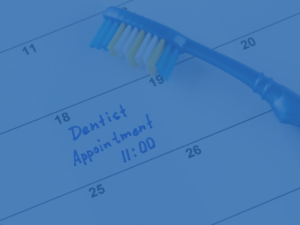No parent wants their child to be in pain. But, there are times when a child may need to have oral surgery. They may have crowded teeth, compacted molars, a severe infection, or to correct jaw alignment.
I think all parents should know and understand and consider a few things to better prepare for a situation in which their child requires a surgical procedure, regardless of why it needs to be performed.
Understanding the process, the reasons for the surgery, and how to prepare your child can make a significant difference in easing your concerns and ensuring a smooth experience. If your child needs oral surgery, here’s what you need to know to navigate this important step in their dental care.
At Orem Pediatric, we perform three main conditions that would require oral surgery: tooth extraction, root canals, and dental space maintainers.
I’ll cover each of these in more detail but first, I want to explain a little more about the procedure itself.
Oral Surgery for Children
Oral surgery encompasses a variety of procedures that address issues affecting the teeth, gums, jaws, and surrounding oral structures. Some of the more common reasons that oral surgery is required are:
- Tooth Extraction: Wisdom teeth, or third molars, often emerge during the teenage years. If these teeth are impacted (unable to emerge properly), they can cause pain, infection, or alignment issues. Extraction might be necessary to prevent these teeth from pushing the other molars forward and causing pretty severe pain.
- Removal of Impacted Teeth: Teeth that fail to emerge or develop properly, such as certain primary teeth, may need to be removed to ensure proper alignment and development of permanent teeth.
Preparing for Oral Surgery
Preparation is crucial for a successful outcome and a smooth recovery. Here’s a step-by-step guide to help you prepare:
- Consultation with Dr. Howell: The first step is to schedule a consultation at Orem Pediatric Dentistry. During this visit, you’ll discuss the procedure, the reasons for it, and any potential risks. We will also provide detailed instructions on how to prepare your child for surgery.
- Pre-Surgery Instructions: Follow any pre-surgery instructions carefully. This may include dietary restrictions, such as fasting before the surgery, or instructions regarding medications. It’s important to adhere to these guidelines to ensure your child’s safety during the procedure.
- Explanation of the Procedure: Depending on your child’s age and understanding, explain the procedure in simple terms. Reassure them about what will happen and emphasize that the team is there to help them feel better. Avoid using words that may create fear or anxiety.
- Recovery Plan: Prepare your home for your child’s recovery. This might include arranging a comfortable place for them to rest, stocking up on soft foods and liquids, and having pain medication (if prescribed).
- Understand Anesthesia Options: Oral surgery for children can involve anesthesia. This can range from local anesthesia (numbing the specific area) to sedation or general anesthesia (putting the child to sleep during the procedure). Make sure that you ask any questions you may have, including risks that may be associated with anesthesia.
Preparation for the Day of the Procedure
On the day of the surgery, ensure that you arrive at the Orem with enough time to complete any necessary paperwork. The surgical team will guide you through the process, and you will likely be given a set of instructions on how to proceed.
Post-Surgery Care
Proper post-surgery care is essential for a speedy and complete recovery. Here are some key points to keep in mind:
- Follow Post-Operative Instructions: Adhere to all post-operative instructions provided to you. This includes guidelines for pain management, dietary restrictions, and how to care for the surgical site.
- Manage Pain and Swelling: It’s normal for your child to experience some pain and swelling after the surgery. Use prescribed pain medications as directed and apply ice packs to reduce swelling. Ensure that your child follows the recommended dosage and timing for pain relief.
- Monitor for Complications: Watch for signs of complications, such as excessive bleeding, severe pain, or signs of infection (e.g., fever, increased swelling). Contact the oral surgeon if you have any concerns about your child’s recovery.
- Dietary Adjustments: Offer soft foods and liquids that are easy on your child’s mouth. Avoid hot, spicy, or hard foods that could irritate the surgical site. Gradually reintroduce regular foods as recommended by the oral surgeon.
- Oral Hygiene: Maintain good oral hygiene, but be gentle around the surgical area. Your child may need to use a special mouth rinse or follow specific cleaning instructions to keep the area free from infection.
Emotional Support
Your child’s emotional well-being is just as important as their physical recovery. Provide reassurance and comfort throughout the recovery period. Spend time with them, engage in soothing activities, and offer encouragement as they heal.
Follow-Up Appointments
Be sure to attend all follow-up appointments with the oral surgeon. These visits are important for monitoring your child’s recovery, addressing any concerns, and ensuring that the surgical site is healing properly.
My Final Thoughts
By understanding the entire process involved with oral surgery, you can make an informed decision. Your child’s health and safety are important to us, and we take every precaution to ensure they are not only safe but comfortable throughout the entire procedure.






